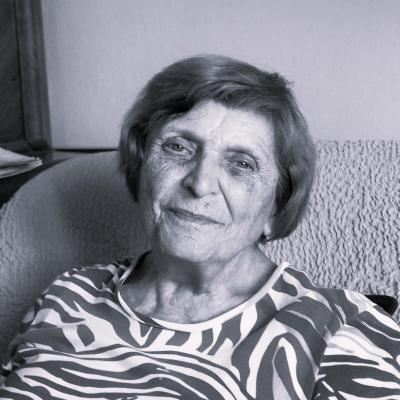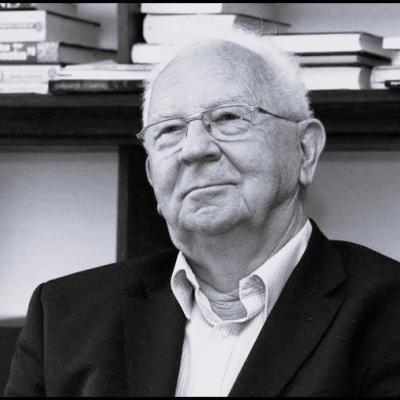Department of History of Slavic Studies and Slavic Literatures
Head of Department: doc. PhDr. Helena Ulbrechtová, Ph.D.
In addition to traditional research on the history of Slavonic studies, the department focuses on research on Slavic literatures in the 20th and 21st centuries in the European context, partly with an overlap into the Czech environment. In addition to individual national literatures, it also deals with interdisciplinary topics, such as the reflection of political thought in literature, the traumatic memory of totalitarian regimes in Polish, Russian, and German literature, or the image of Crimea in Russian literature. An important part of this is research on Russian interwar emigration and its contribution to Czech science and art.
Recent publications
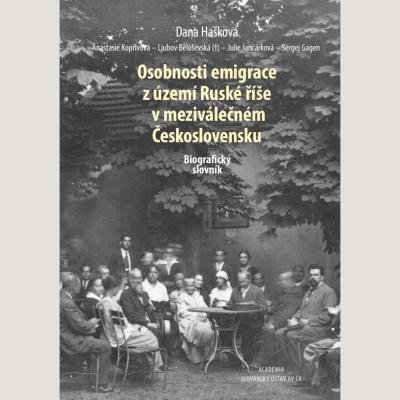
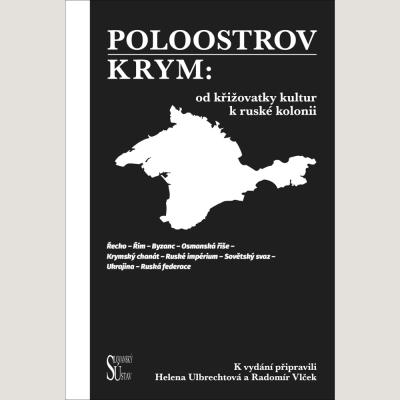
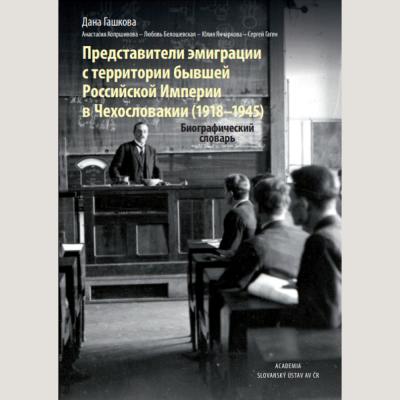
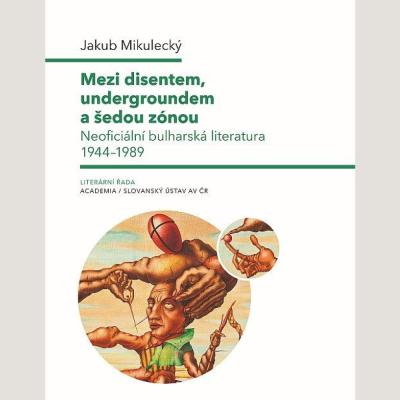
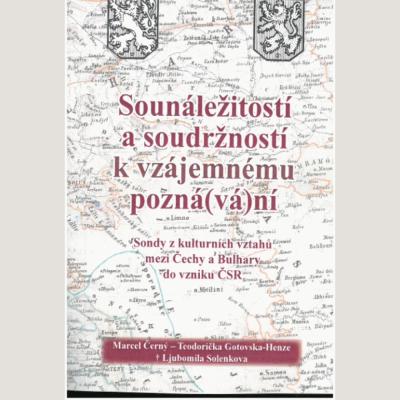
More detailed department activities
Oddělení dějin slavistiky a slovanských literatur působí jak v oblasti domácí literárněvědné slavistické tradice, založené na komparativním pojetí slovanských literatur, tak i v kontextu literárněvědné evropské slavistiky, zkoumající inter- a transkulturní dialog evropských kultur a literatur. Výzkum je soustředěn do tří okruhů.
History of Slavonic studies, literary and cultural relations between Slavonic nations, and history of literatures up to the beginning of the 20th century.
The publication of four volumes of the book bibliography marked the conclusion of the substantial bibliographic project Slavica v české řeči (Slavic in the Czech language). The entries were drawn from a unique card catalogue of journal and book translations from Slavic languages into Czech, which has been built since the 1950s and comprises some 2,000,000 entries. To date, 15,700 of these records have been released in book form, and a further 15,135 records have been converted into electronic form in two differently structured databases. We are continuously engaged in publishing manuscripts and literary and documentary monuments from the history of Czech and Slovak Slavonic studies. In recent years, for instance, we have published the unpublished works of K. J. Erben on Slavic mythology, an annotated edition of two unknown manuscripts of Štefan Krčméry; an annotated edition of a collection of works of a literary scholar Karel Krejčí and the first publication that represents the first documentation of Czech-Bulgarian literary and cultural relations. Presently, historical and ethnological research is being conducted on Frank Wollman’s unpublished collections of folklore. Furthermore, an edition of Josef Kalousek’s correspondence with Sava Chilandarsky is being prepared, in addition to other publications on Bulgarian literature of the modern period and its Czech reflection.
Study of 20th-century Slavic literatures
The study of 20th-century Slavic literatures has evolved from an earlier narrower specialisation in relations between Slavonic nations to a focus on the study of certain phenomena or concepts that cut across European literatures. The starting point is Czech-German relations and the Russian-German cultural context as reflected in the Czech environment. Between 2005 and 2009, research was conducted on the „East-West” paradigm in its various applications and transformations in Slavic and non-Slavic settings. The collaboration with Slavists in Central Europe and literary scholars was expanded, reaching its zenith in 2009 with an international scholar conference and a comprehensive team monograph addressing the relationship between „East and West” in European cultures and literatures.
This project was followed by further specialised research on the reflection of human knowledge in European literature, Literatur und Wissen/Literature and Knowledge, in which Czech scholars, in collaboration with their counterparts from Germany and Sweden, analysed the ways in which scientific or religious thinking is reciprocated in fiction. The international team convened in Prague in 2014 for a conference and published Literatur und menschliches Wissen. Analysen zu einer grenzüberschreitenden Beziehung, which was published in 2018 by Kulturverlag Kadmos in Berlin. The reflection on thought in literature was also developed in a project on Russian imperial thought, which culminated in the team publication Russian Imperial Thought in History, Literature and Art. Traditions and Transformations.
Between 2016 and 2019, research was conducted into literary reflections on the collective trauma of the Holocaust and totalitarian regimes in 20th-century Polish literature. In 2019, Peter Lang Publishing House released a book entitled Kontaminierte Landschaften. Mitteleuropa inmitten von Krieg und Totalitarismus. Eine exemplarische Bestandsaufnahme anhand von literarischen Texten. and in 2020, a monograph on the chronotope of the so-called Warsaw Ghetto was published. In 2016, a project was launched dedicated to the topos of the Crimean peninsula as a crossroads of cultural, historical, and literary memory, and frequently as a site for Russian utopian political aspirations. In 2022, a collective monograph entitled The Crimean Peninsula: From Crossroads of Cultures to Russian Colony was published. Another collective monograph is currently being prepared in German. We have begun researching traumatic and post-traumatic memory and its manifestations in contemporary Slavic literatures. The first event in this area was a workshop organised jointly with the Institute of World Literature of the Slovak Academy of Sciences in Bratislava, which took place in Prague on 17 and 18 October 2022.
Our research also focuses on modern Slavic literatures (primarily Russian, Polish and Bulgarian) and lesser-explored aspects of these literatures (e.g. Bulgarian unofficial literature and dissent). Monographs authored by individual researchers are most commonly produced in this area.
Research into Russian emigration in interwar Chechoslovakia
The research into Russian emigration in interwar Czechoslovakia conducted at the Slavonic Institute is unique in the Czech scholarly environment in terms of its content and scope, and is the most comprehensive study of its kind. It is based on a database of individuals, institutions, and partner institutions of Russian emigration in Czechoslovakia, which has been systematically built up since the end of the 20th century and contains approximately 3,000 entries. Part of the research is devoted to the literary activities of Russian emigrants in Czechoslovakia, with a new focus on evaluating the scientific contribution of Russian emigrants to the Czech cultural environment. An extensive audio archive („oral history”) documenting the phenomenon of emigration as a subject of memories has also been created and processed. In recent years, an edition of annotated transcripts of personal memoirs of some Russian emigrants has been prepared, and a monograph dealing with the scientific legacy of art historian Nikolai Okunev, who spent much of his life in Czechoslovak emigration and also worked at the Slavic Institute, has been published. A project to classify and scientifically describe Russian fine art in the collection of the Gallery of Fine Arts in Náchod (which includes works by Russian emigrants) has been completed and expanded to include a large exhibition project carried out in cooperation with the Aleš South Bohemian Gallery in Hluboká. Currently, Russian and Czech versions of a lexicon of Russian interwar emigration are being prepared, and research into the Kondakov Archive in Prague has begun. In 2016 – 2017, in contractual cooperation with the Memorial of National Literature in Prague, preparations were made for the exhibition The Experience of Exile. The exhibition, entitled The Fate of Exiles from the Former Russian Empire in Interwar Czechoslovakia, opened on June 15, 2017, at the Letohrádek Hvězda (Hvězda Summer Palace).
In 2021, a Russian-language version of an extensive biographical dictionary of Russian interwar emigration was published, and a supplemented Czech version is currently in print. Research into the Kondakov Archive in Prague has commenced, and a second bilingual volume of memoirs by Russian emigrants is currently being prepared. Two databases are scheduled for publication on the SLÚ website: a biographical dictionary and a bibliography of Russian emigrants in the Czechoslovak press. The third database, which concerns emigrant institutions and organisations, is close to completion.
Another task that is currently being undertaken is the preparation of an exhibition that will explore the contribution of technical and scientific emigration from the former Russian Empire to interwar Czechoslovakia. The exhibition is scheduled to take place in September and October 2023 in the exhibition spaces of the Czech Academy of Sciences on Národní třída in Prague.
